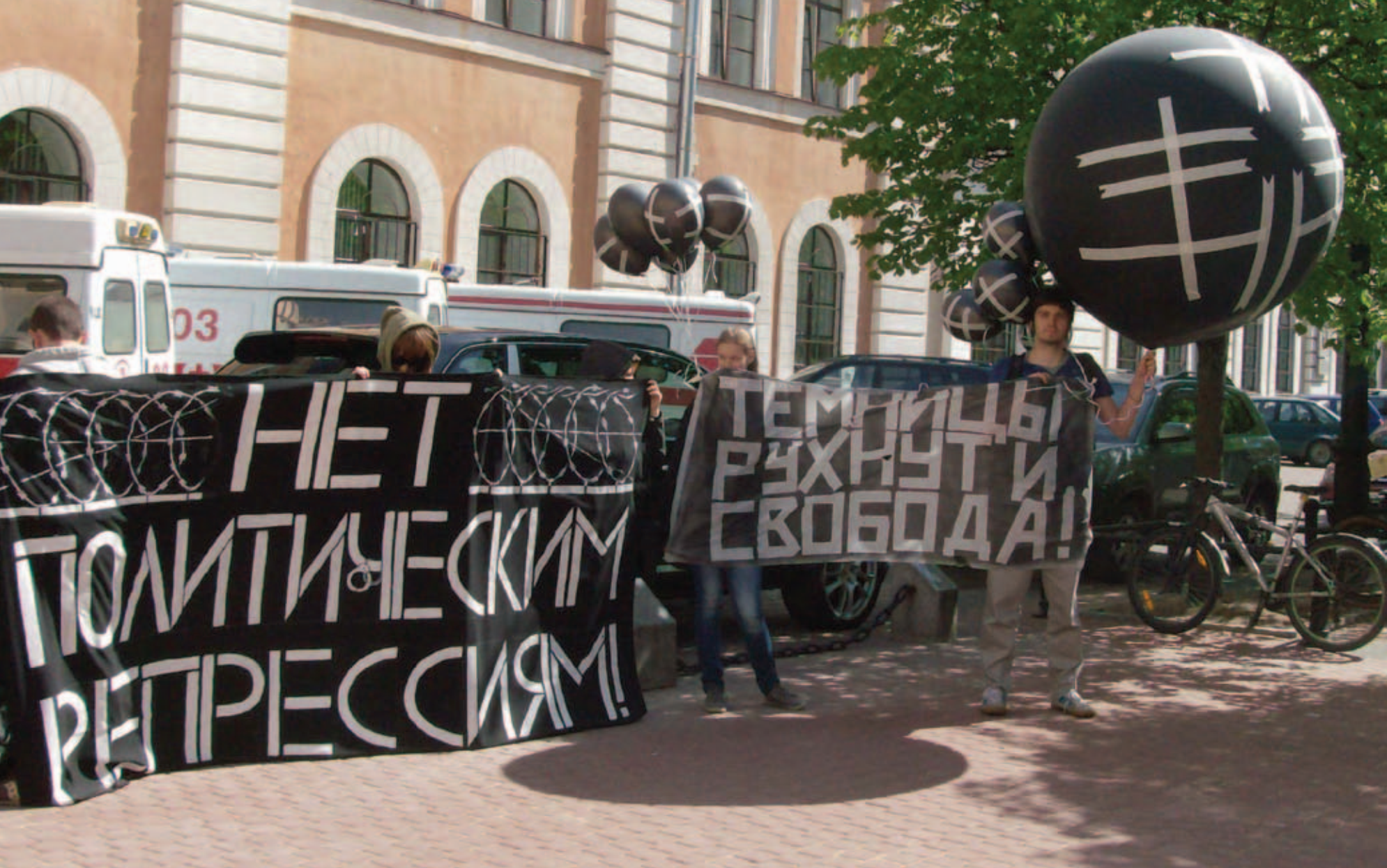
I remember August 2011 as the month my friend and colleague Ales Bialiatski, a human rights defender and director of the Belarussian Viasna Human Rights Centre, was arrested. Bialiatski was immediately recognized as a political prisoner being prosecuted for this human rights work (he was officially charged with tax evasion, but was effectively being persecuted for his civic-mindedness and for defending protesters in Belarus in 2010). At the time, many people came out in support of Ales and Viasna, actions of solidarity were held throughout the entire world, and even the day of his arrest, August 4, was known as the “day of international solidarity with civil society in Belarus” for several years.
We wrote him letters and soon knew the address of Pretrial Detention Center 1 in Minsk –the so-called Volodarka – by heart. Ten years later, we find ourselves using the same address for Ales again: In August 2021, this outstanding human rights defender, who has been awarded multiple international prizes, was again imprisoned with his colleagues, comrades, and other Viasna staff members. Viasna’s website calls on supporters to write letters to them, again to the same Volodarka in Minsk and also to Pretrial Detention Facility 3 in Gomel, where Gomel-based staff members Leanid Sudalenka and Tatsiana Lasitsa were sent earlier. We know from the charges that “a criminal cases was opened under Part 2 of Article 342 of the Criminal Code (‘providing financing and material support for group actions grossly violating public order’) in response to the work of the Human Rights Center Viasna.”
According to official comments made by the Investigative Committee of Belarus, Viasna allegedly provided financing and other material support for the “illegal mass actions” “grossly violating public order.” Valentin Stefanovich, a vice-president of the International Federation for Human Rights (FIDH) who miraculously avoided criminal prosecution in 2011, when he was prosecuted for administrative violations in the first Viasna case, and Viasna lawyer Uladzimir Labkovicz were arrested on the same day as Ales. Viasna volunteers Marfa Rabkova and Andrej Capiuk were arrested in 2020. The absurd accusations against them included: “Incitement of enmity toward the government by a group of unidentified people.”
FIDH, the World Organisation Against Torture, Amnesty International, and other international organizations are again launching campaigns to support these members of Viasna, and colleagues from a number of countries are writing letters demanding their immediate release. This all looks very similar to what happened 10 years ago, but also very different. At the time, there were fewer political prisoners in Belarus, spectators could attend trials, and pickets could be held in Russia. It was more noticeable and did not get lost in the torrent of sad and terrifying news – Viasna continued chronicling the repressions, adding new names to the list of political prisoners literally every day. Protesting outside of the Belarussian Consulate in the fall of 2011 was not without its risks (participants in our picket in Saint Petersburg were arrested), but now there is no longer any possibility of holding such a demonstration.
And our action in May 2012 went quite well. Now it’s hard to imagine that in the very heart of Saint Petersburg, on Malaya Konyushennaya Street, near the Monument to the Saint Petersburg Policeman, a fairly large group of people was able to stand for a long time holding signs reading: “Dungeons will fall, and Freedom!” [a reference to Pushkin’s poem In deep Siberian mines – Trans.], “No to political repressions,” and “Whiskers-whiskers, you overlooked something, you didn’t fully understand” (these lines from Yuri Dombrovsky’s anti-Stalin poem are also relevant for Belarus now). Some of the slogans were written on balloons, and a huge black balloon with a picture of broken bars and the words “Dungeons will fall! ” flew so high up into the sky that some protestors even hoped it might fly all the way to Belarus. A box with the words “No to a police state” in two languages was stuck to the head of the bronze policeman. All the participants and passersby were asked if they wanted to sign a bright postcard with flowers that read “Spring is beautiful” [Viasna is the Belarussian word for “spring” – Trans.]; these cards were later sent to Ales. It really was spring, there was hope… Two years later, in June 2014, Ales was released early.
Political repressions must end – no one should be imprisoned for standing up for their rights to fair elections, freedom of speech, and freedom to express their civic-mindedness. And people should especially not be persecuted for performing their professional duty – protecting human rights. Our colleagues and friends from the Viasna Human Rights Centre must be released immediately!
Stephania Kulaeva,
expert, Anti-Discrimination Centre Memorial
First published on Radio Liberty’s blog









 Feedback
Feedback